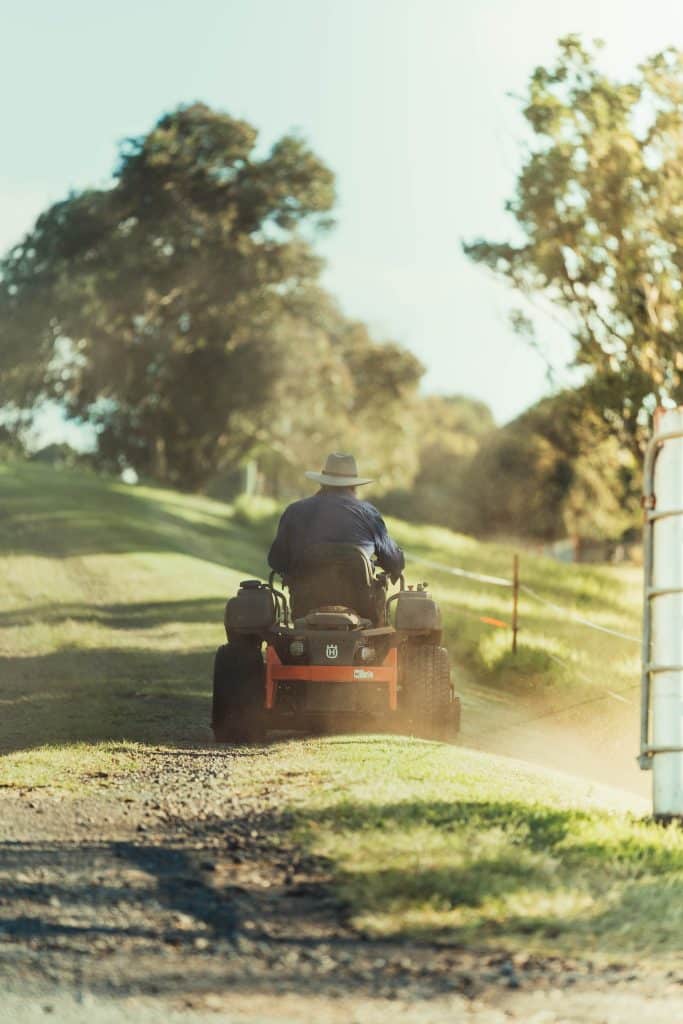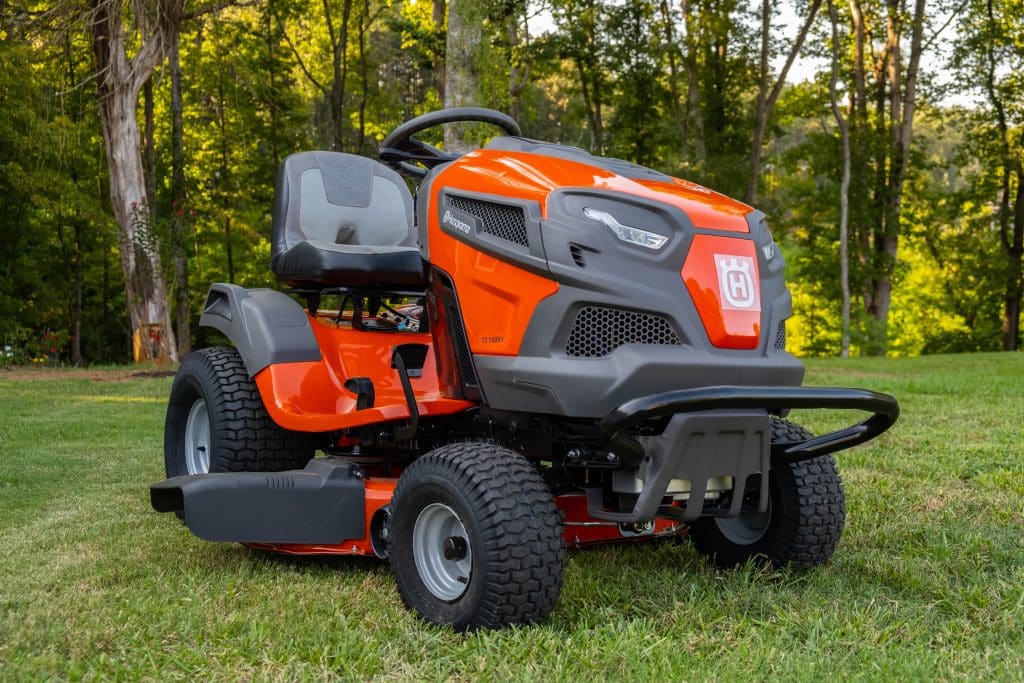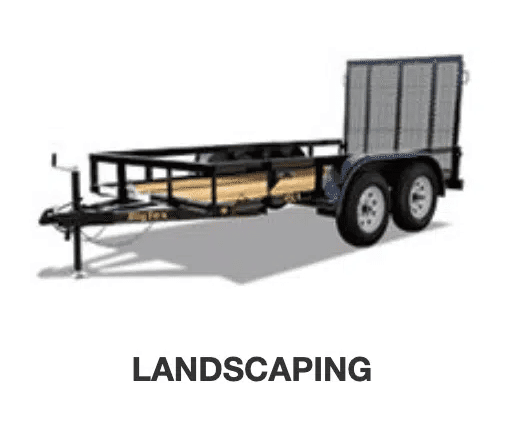Are you struggling to find the perfect lawn mowing trailer to cater to your landscaping needs? Look no further! In this blog post, we’ll guide you through the process of selecting and customizing the ideal landscape trailer to boost your efficiency and ensure the safety of your valuable equipment. Let’s dive into the world of landscape trailers and discover the best options to enhance your landscaping business.
Short Summary
- Understand the types, materials, and customization options available to choose the best fit for your landscaping business.
- Consider factors such as tandem axle vs single axle, essential features like strong frames & axles, secure storage solutions, and loading/unloading options.
- Fully customizable units offer a personalized solution tailored to specific needs with maximum efficiency & satisfaction.
Choosing the Right Lawn Mowing Trailer
Selecting the right landscape trailer involves considering factors such as type, material, and size to suit your specific needs. With an extensive selection of landscape utility trailers on the market, it is crucial to understand the differences among the various options to ensure you make the best choice for your landscaping business.

To help you make an informed decision, we will discuss the types of landscape trailers, material options, and the customization possibilities available. So, let’s begin by exploring the different types of landscape trailers to determine which option best fits your requirements.
Types of Landscape Trailers
Landscape trailers come in various types, including:
- Open trailers: offer a flatbed for easy loading and unloading
- Enclosed trailers: provide added protection for your equipment
- Gooseneck trailers: considered heavy-duty options, suitable for transporting larger equipment
- Fifth wheel trailers: also considered heavy-duty options, suitable for transporting larger equipment
Each type of landscape trailer serves a specific need, making it easier for you to find the perfect trailer for your landscaping business. By understanding the benefits and drawbacks of each type, you can make an educated decision that aligns with your requirements and helps you achieve maximum efficiency in your operations.
Material Options
Material options for landscape trailers include steel and aluminum, each with its own benefits and drawbacks. While there may not be unlimited trailer options, these two materials offer a variety of choices in terms of durability, weight, and customization.
Steel trailers are known for their strength and durability, making them an excellent choice for transporting heavy loads. However, they tend to be heavier than aluminum trailers, which may pose challenges in maneuverability. On the other hand, aluminum trailers boast lightweight and corrosion-resistant properties, making them an ideal choice for those seeking a long-lasting and easy-to-maintain option.
By weighing the pros and cons of each material, you can make a well-informed decision that suits your specific landscaping needs.
Customizing Your Lawn Mowing Trailer
Customizing your lawn mowing trailer can significantly improve efficiency and safety. By collaborating with a trailer manufacturer to include features, upgrades, and lawn care accessories for your trailer, you can tailor your trailer to your specific needs, ensuring it is built for durability and optimized for your operations.
Some customization possibilities include:
- Implementing a trailer mover from an old lawn tractor
- Attaching D-rings for easy mower tie-down
- Installing side panels or compartments for additional storage.
Now, let’s delve deeper into the specifics of hauling equipment and yard waste with customized landscape trailers.
Hauling Equipment and Yard Waste
Hauling equipment and yard waste requires a trailer with adequate capacity, mesh metal sides, and tailgate ramps for easy loading and unloading. There are various methods available for this purpose, such as utilizing a dump trailer to transport equipment and leaves, using a tarp to collect grass clippings and towing it with a zero-turn mower, or employing a utility trailer to transport lawn care equipment.
Check out this post for help finding the Best Dump Trailer.
Trailers specifically designed for landscapers often feature:
- A rear loading area for equipment
- A front dump box for yard waste
- Mesh metal sides
- Tailgate ramps for convenient loading and unloading
These trailers not only make it easier to transport your equipment but also ensure your operations run smoothly and efficiently.
Tandem Axle vs. Single Axle
In addition to custom features, it’s important to consider whether a tandem axle or single axle trailer best suits your needs. Tandem axle trailers have two sets of wheels, providing enhanced stability and load-bearing capacity compared to single axle trailers, which possess a single set of wheels.
Tandem axle trailers are well-suited for transporting heavier items, including bulky equipment and significant quantities of yard waste, while single axle trailers are a more economical option due to their smaller size and lower cost. By understanding the benefits of each axle configuration, you can choose the most appropriate option for your landscaping requirements.
Essential Features for Lawn Care Trailers
Lawn care trailers are designed with the following essential features:
- Strong and durable frame
- One or more axles
- Brakes
- Tires
- Lights
- Hitch system
- Ramp or tailgate for easy loading and unloading
- Secure storage for equipment
- Protection from the elements
- Optional features such as trimmer racks, toolboxes, and fuel caddies

These features not only enhance the functionality of your trailer but also ensure it is built to withstand the rigors of the landscaping industry.
Let’s take a closer look at the loading and unloading options and secure storage solutions that are indispensable for lawn care trailers.
Loading and Unloading Options
Loading and unloading options include tailgate ramps and drop-down gates to facilitate access to equipment. Tailgate ramps are designed to be attached to the tailgate of a trailer, making it easy to load and unload equipment. Drop-down gates, on the other hand, can be lowered to the ground, providing convenient access to the trailer’s contents.
By incorporating user-friendly loading and unloading options, you can significantly improve the efficiency of your landscaping operations and avoid unnecessary delays caused by cumbersome equipment access.
Secure Storage Solutions
Secure storage solutions, such as locking toolboxes and equipment racks, help protect your valuable tools and equipment from theft or damage. These solutions offer extra storage space for tools and other items while ensuring their organization and accessibility.
By investing in secure storage solutions, you not only safeguard your valuable equipment but also provide peace of mind by knowing that your tools are protected.
Now, let’s explore the top manufacturers of landscape utility trailers and their offerings.
Top Manufacturers of Landscape Utility Trailers
Notable manufacturers of landscape utility trailers include:
- Big Tex Trailers
- PJ Trailers
- Felling Trailers
- Sure-Trac
These top manufacturers offer a variety of options, including enclosed steel and aluminum trailers, to cater to the diverse needs of the landscaping industry.
By choosing a trailer from one of these reputable manufacturers, you can rest assured that you are investing in a high-quality product built to withstand the demands of your landscaping business. Let’s dive deeper into the enclosed steel and aluminum trailer options offered by these leading manufacturers.
Enclosed Options Steel
Enclosed steel landscape trailers provide increased durability and security for your equipment. Options such as steel frame utility trailers, steel V-nose enclosed cargo trailers, and steel-sided landscape trailers offer various features tailored to your needs.
Steel frame utility trailers, including heavy duty trailers, are known for their strength and durability, making them an optimal choice for transporting heavy loads. Steel V-nose enclosed cargo trailers offer enhanced security and improved aerodynamics for better fuel efficiency.
Steel-sided landscape trailers, on the other hand, provide lightweight maneuverability and protection from the elements. With these options, you can select the enclosed steel trailer that best fits your requirements.
Aluminum Landscape Trailers
Aluminum landscape trailers offer a lightweight and corrosion-resistant alternative to steel trailers. Some options include:
- Carry-On 6 x 12 Aluminum Landscape Utility Trailer – Rear Mesh Gate
- Aluminum utility trailers from brands like Carry-On and Primo
- All aluminum trailers like open single utility and open tandem utility
These landscaping trailer solutions provide more landscaping trailer options for your needs, including a range of landscaping trailers, all while offering awesome trailer content.
The advantages of aluminum trailers include:
- Lightweight construction
- Corrosion-resistant
- Durable and long-lasting
- Easy to maintain
- Tailored features
By exploring the aluminum landscape trailer options, you can find an ideal solution that balances durability, ease of maintenance, and tailored features.
How to Maximize Trailer Length and Width
Maximizing trailer length and width can improve efficiency and accommodate larger equipment. When attempting a trailer length increase, it is essential to take legal restrictions and regulations into account. The max length of a trailer may vary depending on the state or city, but it is generally around 48 to 53 feet for refrigerated and flatbed trailers.
Similarly, the max width of a trailer may vary, but it is usually around 96 inches on surface streets. To ensure compliance with local regulations, it is essential to review the restrictions applicable to your locality and make informed decisions when customizing your trailer dimensions.
Fully Customizable Units: The Ultimate Solution
Fully customizable units provide the ultimate solution for lawn care professionals, with tailored features to meet specific requirements. These units offer personalized solutions, allowing you to select the features, specifications, and configurations that best meet your landscaping needs.
By opting for a fully customizable unit, you can achieve maximum efficiency, functionality, and satisfaction, making it the ultimate solution for your landscaping business.
Now that we’ve explored the various aspects of landscape trailers, let’s summarize the key points and conclude our discussion.
Summary
In this blog post, we’ve explored the various types, materials, and customization options available for landscape trailers, helping you make an informed decision that suits your specific needs. From selecting the right type and material to incorporating essential features and maximizing trailer dimensions, you now possess the knowledge to choose the perfect lawn mowing trailer for your landscaping business. With a high-quality and customized landscape trailer, you are one step closer to achieving optimal efficiency and success in your landscaping endeavors.
Frequently Asked Questions
What Size Trailer Do I Need for a Lawn Mower?
For a lawn mower, a 4’ x 6’ utility trailer should suffice.
What Type of Trailer is Best for Landscaping?
Utility trailers offer the best solution for landscaping businesses due to their higher weight capacity, larger expanse of space, and ease of access.
It’s important to consider additional factors before purchasing a utility trailer.
What is a Mower Trailer?
A mower trailer is an attachment to a lawn tractor, allowing it to become a versatile do-it-all machine. Tractor trailers are aptly named, as many tractors were originally built to serve this purpose.
What are the Different Types of Landscape Trailers?
Landscape trailers come in a variety of styles, including open, enclosed, gooseneck, and fifth wheel.
How can I Customize my Lawn Mowing Trailer?
Customize your lawn mowing trailer by implementing a trailer mover from an old lawn tractor, attaching D-rings for easy mower tie-down, and installing side panels or compartments for additional storage.
Adding a trailer mover to your lawn mowing trailer can make it easier to move around your yard. D-rings can be used to secure your mower to the trailer, ensuring it won’t move around while you’re mowing. Installing side panels or compartments can provide additional storage.

